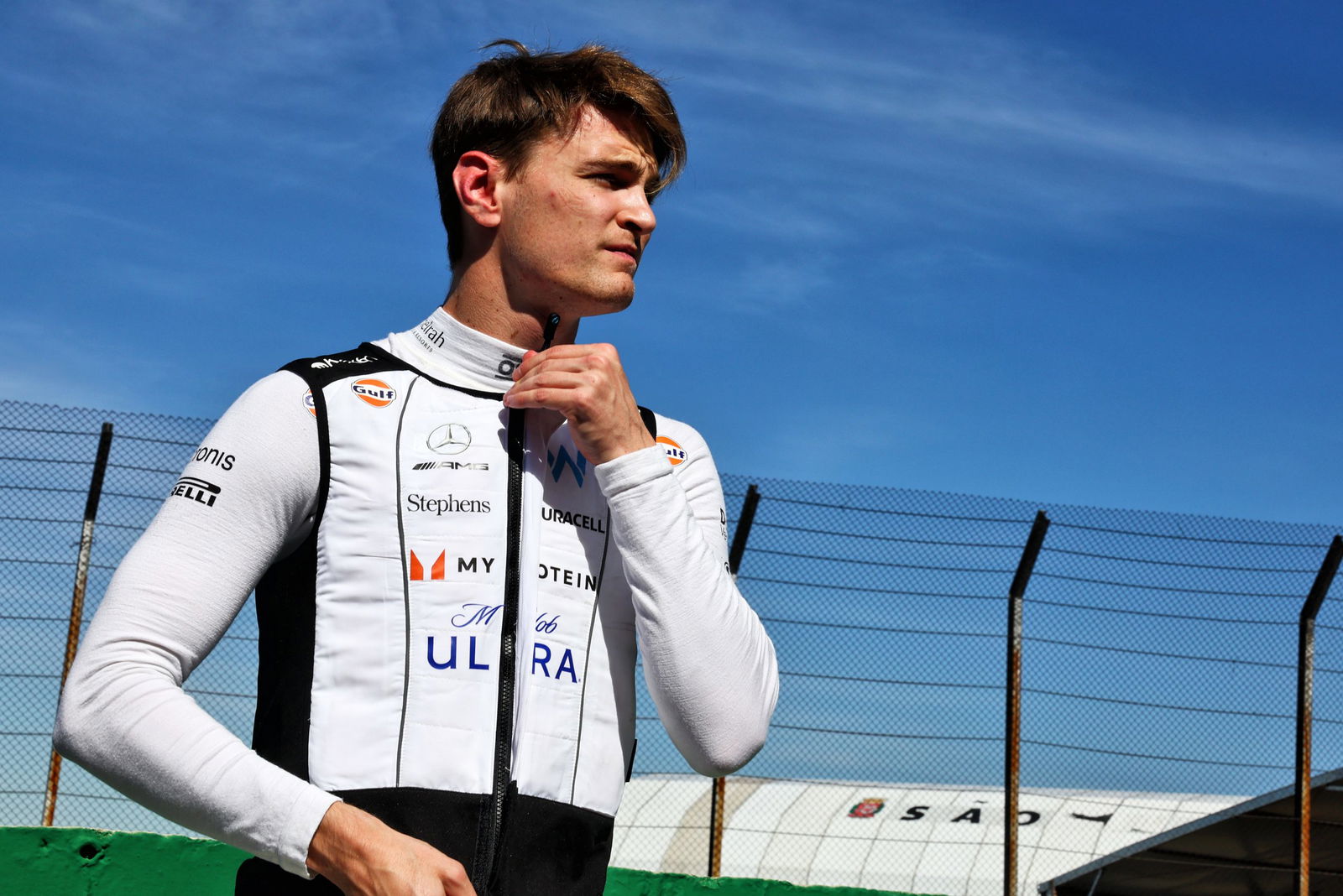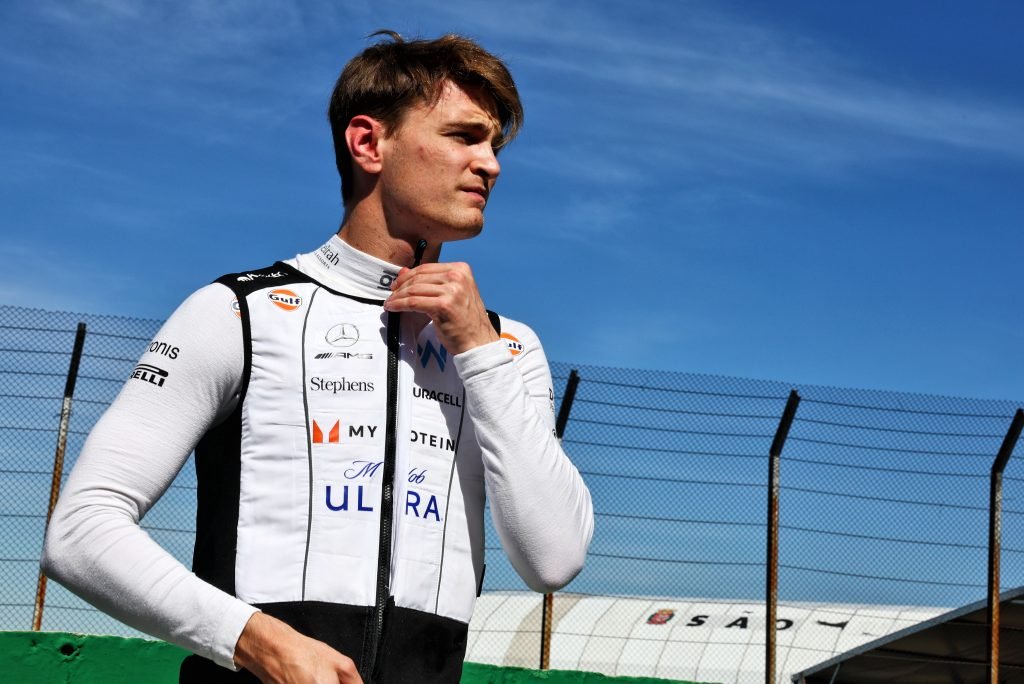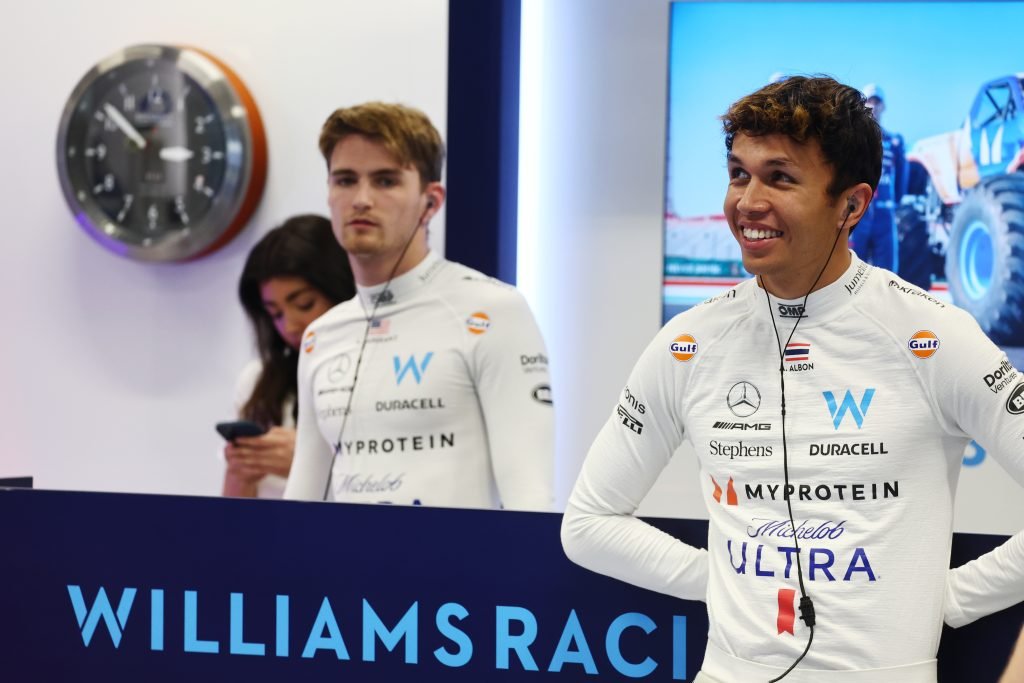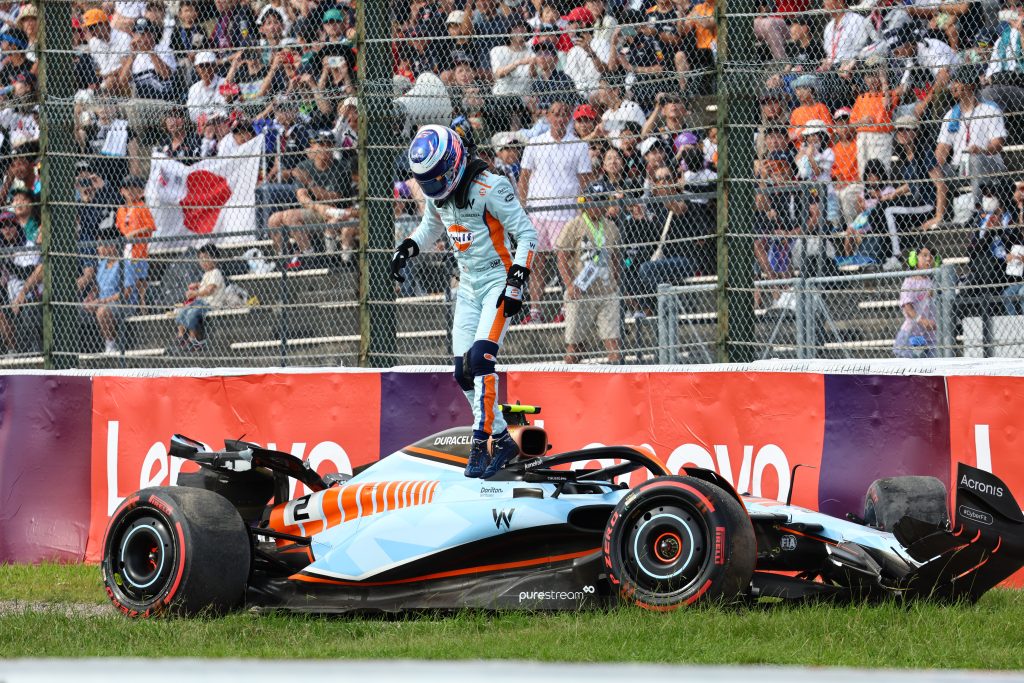

Sargeant was thrust into the harsh glare of F1’s spotlight after Williams opted to take a gamble as they sought a driver to replace Nicholas Latifi.
Sargeant had only managed fourth in the F2 championship in 2022, yet remarkably found himself on the F1 grid ahead of the three drivers who finished above him in the standings – Felipe Drugovich, Théo Pourchaire, and Liam Lawson – who found their paths blocked as there were no seats available at their affiliated teams.
The 23-year-old had acquired the necessary Super Licence points at the final feature race of the year in Abu Dhabi, as had been demanded of him by then-team principal Jost Capito just a few weeks previously.
Less than four weeks later after landing a seat in F1, Capito departed Williams, leaving Sargeant without a mentor until the arrival of new team principal James Vowles in February last year.
Vowles was the ‘comfort blanket’ Sargeant desperately needed, with the Englishman supporting the young American through a turbulent debut campaign in which he was out-qualified 22-0 by team-mate Alex Albon, and who was involved in numerous crashes along the way.
Vowles, however, gave him every opportunity to prove he was worthy of a second season, and towards the end of the year, Sargeant finally began to get to grips with what was required to compete in F1.
It was enough to convince Vowles to extend Sargeant’s contract into this season.
Sargeant is confident he learned enough about himself last year that will stand him in good stead for the rigours ahead of a record-breaking 24-race calendar.
Asked by Speedcafe as to the specifics of his learnings, Sargeant said: “For me, it’s more at the low points, being able to pick yourself back up, block out the noise. I feel like I became much better at that throughout the year.
“It’s also about working with the people I need to work with, and not letting a mistake hold you back because if you do that, it’s not going to work out.
“You have to understand that when you make a mistake, you look at it, understand it, and if there’s a reason to make any changes, figure out what is the best way to go about it.
(Article continues below image)

“But then when you get back in the car, there can’t be a single thought. You just have to get straight back into going for it.
“And I also think just building up a level of resilience throughout the year. I’d be lying if I said there weren’t a lot of hard times, so just pushing through those, finding another gear when you need it.
“There are so many things, just always trying to look after your mind as well. When you come in as a rookie, it’s really easy to be overexcited, you have all this sense of energy, and eventually it’ll catch up with you.
“And just reminding yourself to look after your health throughout the year which can make a big difference throughout the season.”
Sargeant is not afraid to concede that even for a driver so young he works with a sports psychologist.
In recent years, mental health has become a vital component of a person’s wellbeing, no matter their walk of life, and there is no longer the stigma attached to it as was arguably the case a few years ago.
Athletes like Sargeant see it as “another very normal thing nowadays”.
“It’s more about having a plan in place,” he said. “The actual offloading of whatever it may be, it can be with a friend, it doesn’t have to be with a sports psychologist. They’re just there to guide the way, I guess you could say.
“More than ever, that’s great because if you don’t understand yourself, and the best way to go about things, it’s not going to work.
“The only way you can figure that out for yourself is through trial and error, through mistakes. Unfortunately, it sucks, but it’s the truth.
“Eventually you build up that level of understanding for yourself, and that’s when you can start to limit the bad things happening.”
(Article continues below image)

Sargeant believes he now knows himself better than at any time in his life, learning how to adapt, and when to expend energy on the off-track rigours that can often detract from the crucial on-track focus.
Whilst recognising that “you never stop learning about yourself”, he reflects on the fact he never needed to know himself as much as he did last year.
“In the past, in the junior formulas, you can get away with just natural ability,” he said.
“In F1, a lot more goes into it. There’s a lot more outside noise, whether that’s media, marketing, partnerships, sim days, you’re non-stop, and a lot of that takes a toll on your mind.
“Once you can get that under control, you can start to move forward from a mental point of view.”
After getting caught up in the F1 bubble in the beginning, Sargeant has also learned to appreciate his surroundings, and how fortunate he is to be doing what he is doing after initially struggling to cope with “all the stress and the things that come with it, and never getting a rest to yourself”.
He added: “I’ve learned to take a step back. It’s very easy to get caught up in the moment and not appreciate what you have, what you’re doing.
“The opportunity to drive an F1 car…you take a step back, take a few breaths, and you give yourself a little bit of time.
“Even if that’s stepping away from what is technically going to help you sometimes, you need to do that to get your head back in the right place.
“And I think that’s completely normal, though. It’s not something that is just (about being) a rookie. We all experience that. We all get tired through a season.
“That’s when you have to remind yourself, how lucky you are to be where you are.”





















Discussion about this post